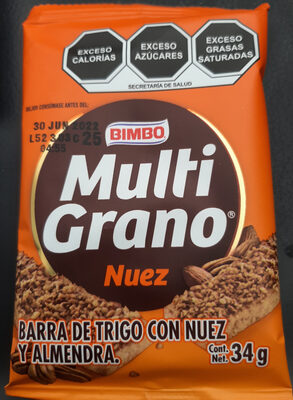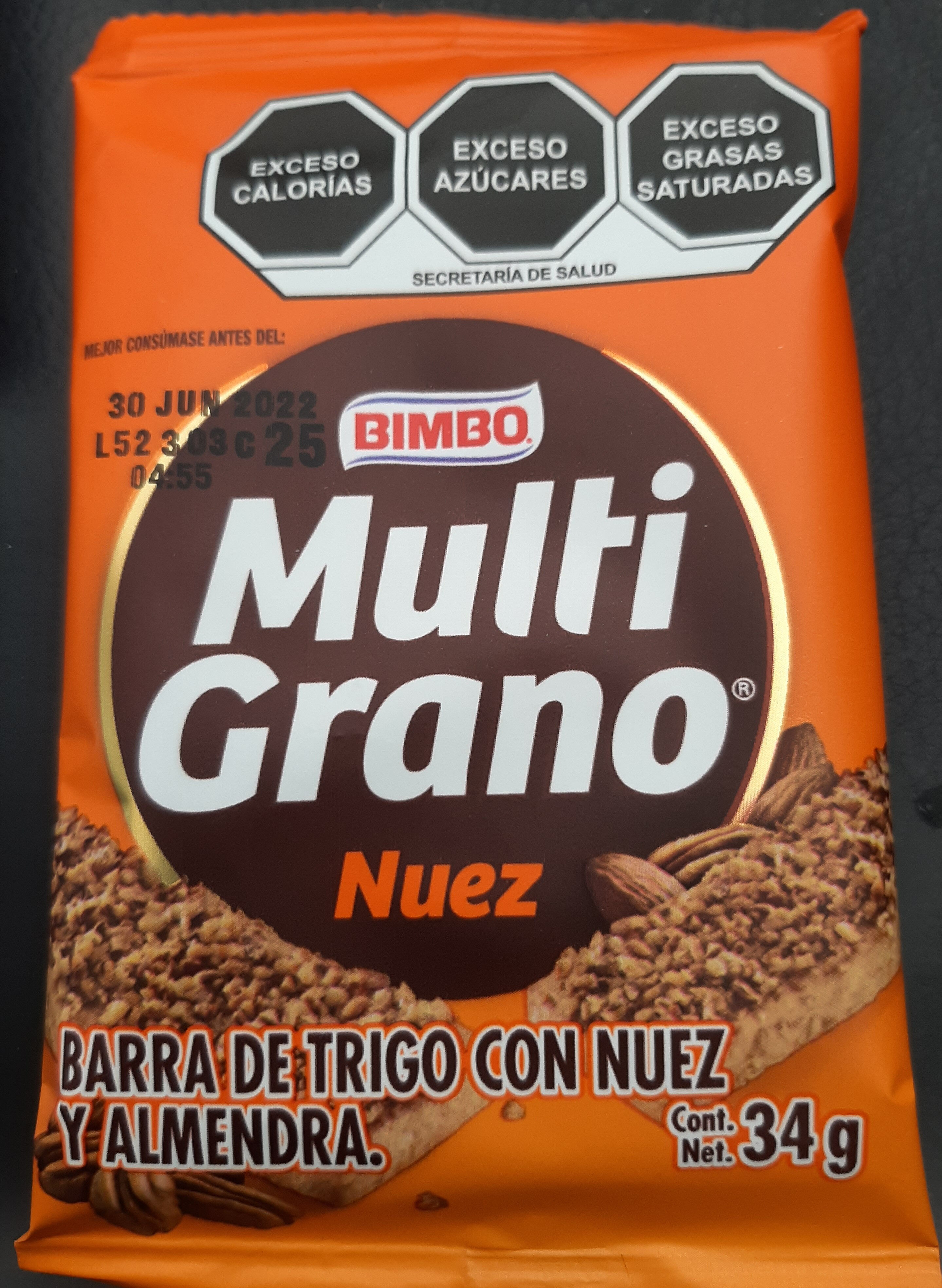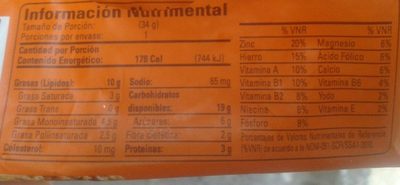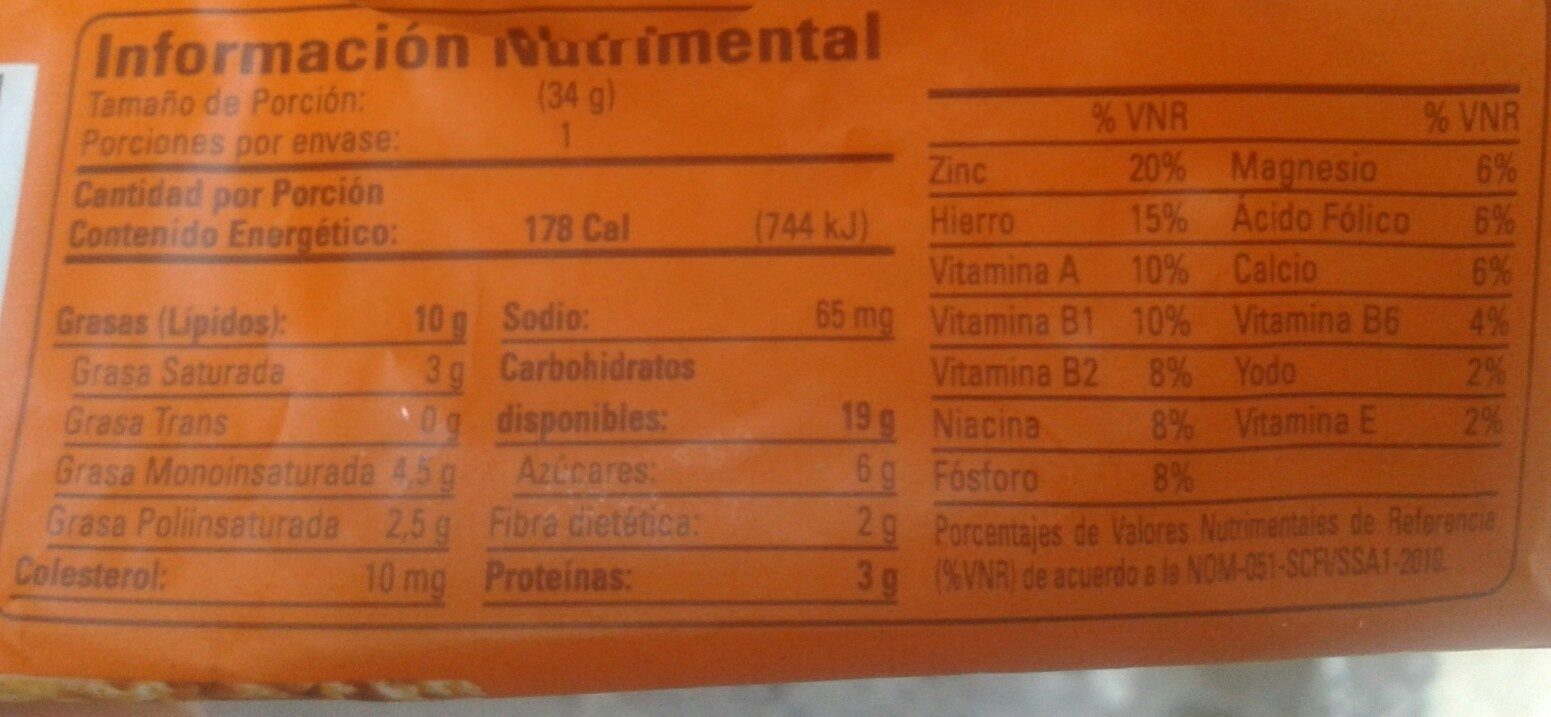Multigrano - Bimbo - 34 g
This product page is not complete. You can help to complete it by editing it and adding more data from the photos we have, or by taking more photos using the app for Android or iPhone/iPad. Thank you!
×
Barcode: 7501030424345 (EAN / EAN-13)
Common name: Barra multigrano Bimbo
Quantity: 34 g
Packaging: Plastic
Brands: Bimbo
Categories: Snacks, Sweet snacks, Bars, Cereal bars
Manufacturing or processing places: México
Matching with your preferences
Environment
Packaging
Transportation
Report a problem
Data sources
Product added on by kiliweb
Last edit of product page on by fix-serving-size-bot.
Product page also edited by mrhalal, mxbot, nobeeakon, off.baafb212-5aaf-41e0-ab46-1bcdd3432d40, openfoodfacts-contributors, packbot, younescontrib, yuka.R0lrSkc1UVptTWthbHZFRDR6elordmxGeExpa2VHZnNNYnRMSVE9PQ.
If the data is incomplete or incorrect, you can complete or correct it by editing this page.










